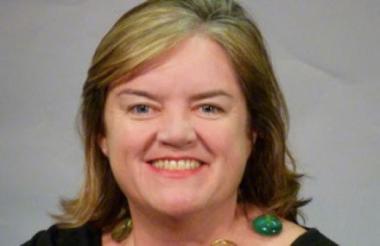Some foundations have been too slow getting money to charities during the coronavirus, according to former deputy director of Shelter Louise Casey.
Casey, who has also worked as an adviser to successive governments on homelessness, poverty and anti-social behaviour, was speaking yesterday at an online event hosted by the think tank NPC.
She told the event that she had been “frustrated” by the rules and procedures which had prevented foundations from spending money more quickly.
Casey also told the event that the supermarket giant Tesco, which has received millions of pounds in public money during the crisis, should help families pay off Universal Credit debts rather than returning the cash to the Treasury.
Casey: Some grant applications are ‘a nightmare’
Casey said that, based on her recent experience of pulling together a campaign to fight homelessness, some funders “just want you to go through a load of rules. Children in Need made £31m the other week. Has anybody looked at a Children in Need application recently? It’s a nightmare.
“There are some really simple things people could do.
“You could look at the indices of multiple deprivation and hand the money out to the areas which have got those. You could ring the local authority, or you could ring me. Ring me and I will tell you how to spend your money."
Children in Need, which raised £37m during its television event this year, said that they had made changes to their application process this year to help make it more straightforward.
Casey added later in the event: “Some of the people on this call are funders.
“I have been frustrated by how slow it has been to persuade people just to stop with the processes, and work out how you get money and stick fifty grand into something and let the campaign roll on.”
Help with Universal Credit
Casey also said that she had been trying to get in touch with Tesco’s boss Ken Murphy, to discuss whether the firm would use some of the extra public money it has received during the crisis to help families on Universal Credit.
Tesco, in common with other large retailers, has agreed to repay hundreds of millions of pounds in emergency business rate cuts.
Casey said: “I’m trying to get hold of the guy who runs Tesco’s [to say], ‘Don’t give all that money back to the Treasury. Take your £500m windfall and give it to the families in poor areas so they can pay off their Universal Credit debt, so they can come into the new year and out of the pandemic without that debt around their shoulders’.”
She added later: “Lots of people have done really well out of this pandemic. That’s why I’m trying to speed dial the guy from Tesco to say, ‘Don’t give that back to Rishi [Sunak, the chancellor], give us a wee cut for some of the people in the places that we really need it for’.”
Earlier this week, the Trussell Trust said that over half of people using foodbanks were paying back debts on Universal Credit payments.
Optimism
Talking about why she was optimistic for the future, Casey hailed the number of volunteers who had helped out during the early months of the pandemic, as well as the efforts of England footballer Marcus Rashford to highlight child poverty.
She said: “750,000 people volunteered to help with the NHS, so many that the NHS couldn’t cope with it.
“A local foodbank I was at last week in Bexley has 20 people a day offering to volunteer because they want to help.
“The public do care.
“When people have a pop at Marcus Rashford, saying he is doing the wrong thing, they should be very, very careful because actually a lot of us love the fact that man is standing up for poor kids and poor families.”
Children in Need: Applications are ‘as straightforward as possible’
A Children in Need spokesperson told Civil Society News: “We are committed to ensuring that money generously donated by the public has the greatest possible impact on young lives and we take that responsibility very seriously.
"Following The Big Night In Appeal in April, we rapidly developed several dedicated Covid-19 response programmes and extended our Emergency Essentials programme which supports families in crisis.
"We have also taken steps to significantly reduce the time it takes to make decisions on all applications to ensure that funding is awarded as quickly as possible, to benefit those who urgently need our help.
"In the last four months alone, the charity has awarded £24.7 million in funding to organisations supporting disadvantaged children and young people during the pandemic.
“As a funder, we want to make it as straightforward as possible to apply for a grant, whilst ensuring that we capture all of the information we need to make good funding decisions. With this in mind, we have already made some changes this year to our application process and will continue to explore opportunities for further improvements."
ACF: Some corners can't be cut
Reacting to Casey's comments, Max Rutherford, head of policy at the Association of Charitable Foundations, cautioned that funders should be wary of changing processes “based on the opinion of any one individual”.
Rutherford said: “It’s right that expectations of charitable foundations have been raised this year, not just in terms of 'how much' they give but also 'how' they do it.
"Since the start of the pandemic, foundations have awarded funding at unprecedented levels and speed, with much of this going to charities and good causes at the front line of the crisis, from stocking food banks, to providing charities with PPE, to accelerate the search for the vaccine.
"We’ve heard from charities across civil society about the welcome increase in pace and flexibility that funders have offered applicants and grantees this year. Among many others, the Chancellor, Rishi Sunak, has publicly praised foundations for their fast response.
"Many foundations have abandoned their usual forms and processes to make them more streamlined and collaborative than ever, and are continually seeking to improve them further.
“But there are some corners that simply can’t be cut, and too much haste can result in bad choices.
“Foundations, as charities themselves, are accountable not just to their donors and beneficiaries, but to the charity regulators, and it would be particularly poor practice to bypass the necessary due diligence required to make sound financial decisions, which safeguards both people and resources.
"It would also be considered poor practice for a foundation to make funding decisions based on the opinion of any one individual, especially where that person held no governance role within the charity itself.”
Editor's note: This article was updated to include commentary from ACF.
Related articles












